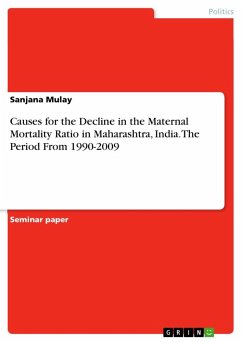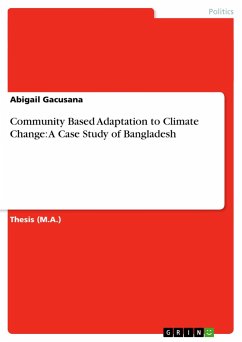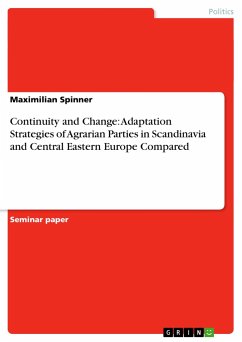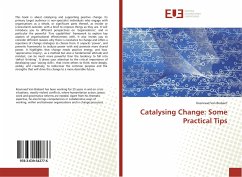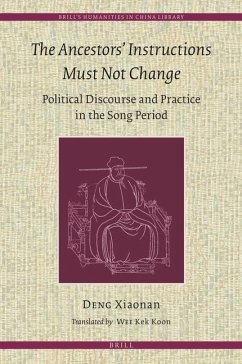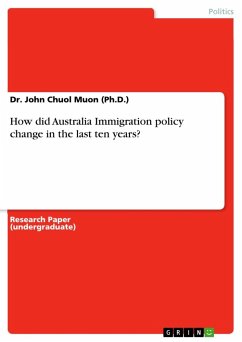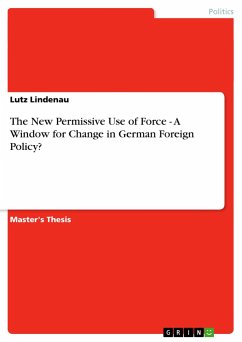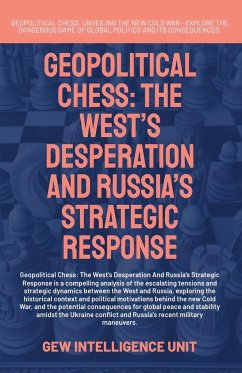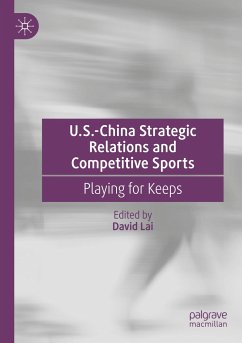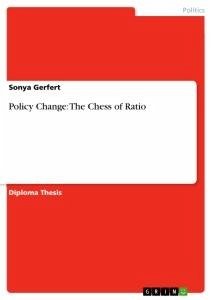
Policy Change: The Chess of Ratio
Versandkostenfrei!
Versandfertig in 1-2 Wochen
42,95 €
inkl. MwSt.

PAYBACK Punkte
0 °P sammeln!
Diploma Thesis from the year 2012 in the subject Politics - International Politics - Topic: Miscellaneous, grade: 9/10, University of Twente , course: decision-making, language: English, abstract: This research examines political change within the European domain on genetically engineered organisms through the lens of Sabatier¿s Advocacy Coalition Framework (ACF) and Haas¿ Epistemic Community (EC). The question about actors and policy change within the last three, almost four decades revolves around a dispute of contradicting beliefs (utopian and dystopian) that impacts the understanding of ...
Diploma Thesis from the year 2012 in the subject Politics - International Politics - Topic: Miscellaneous, grade: 9/10, University of Twente , course: decision-making, language: English, abstract: This research examines political change within the European domain on genetically engineered organisms through the lens of Sabatier¿s Advocacy Coalition Framework (ACF) and Haas¿ Epistemic Community (EC). The question about actors and policy change within the last three, almost four decades revolves around a dispute of contradicting beliefs (utopian and dystopian) that impacts the understanding of GMOs and the development of suitable policy strategies to assess and manage potential risks and benefits. A post-hoc hypothesis testing is used in order to analyse change within the development of this policy domain. The main focus is on the various actor groups, their beliefs and their impact on policy change. This study confirms that the actual dominance of actors in this policy domain and their ability or drive to lobby for their belief are important aspects when considering policy change. It is the dominance of certain beliefs over others within the institutional structures and involved governmental bodies that enables or limits policy change. Other significant findings are 1) that disputing beliefs did not change while actors¿ constellations within advocacy coalitions did, 2) that dependencies between science and economic criteria and values increased, and 3) that technological advances have increased the role of other players limiting the autarchy of scientists. In extension the concept of Haas on the EC can improve a theoretical framework especially in disputes involving high uncertainties. In conclusion, this research determines that the ACF and the EC present suitable tools to analyse policy change in the GMO policy domain.



